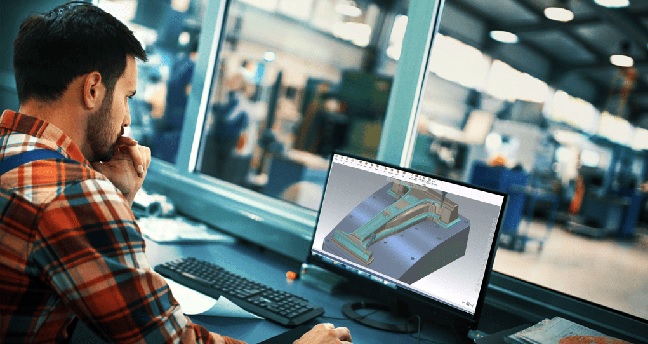How to Become a CMM Programmer?

Programming for Coordinate Measuring Machines, or CMMs, is a crucial skill in the engineering and manufacturing sectors. These tools gauge an object’s geometry, size, shape, and placement. In CMM programming, programmers create programs instructing the machine to take these precise measurements. One needs to know a few things if one wants to work as a CMM programmer. This article will give one thorough overview of the requirements for becoming a CMM programmer, including the training and expertise needed, the career prospects, and the potential pay.
Educational qualification for CMM programmers
For the minimum criteria, one should have a high school diploma to work as a CMM programmer. Although most employers favor applicants with a technical degree, such as an associate’s degree in mechanical engineering or a closely related profession, this is only sometimes the case. Some employers may also require an engineering or similar bachelor’s degree.
One can enroll in classes in metrology, computer-aided manufacturing (CAM), and computer-aided design (CAD) while in school. These courses provide a firm foundation in programming and measurement theory. Enrolling in mathematics and statistics classes will help one evaluate measurement data.
One might look for on-the-job training and chances to obtain experience in programming after completing their academic schooling. Many businesses provide apprenticeships or internships that allow an aspirant to learn from experienced CMM programmers.
Skills
To thrive in the field of CMM programming, one needs to possess a variety of skills, including:
- Attention to Detail
CMM programmers must have a keen eye for detail. They should identify even the slightest deviations in measurement data and adjust the programming accordingly.
- Programming Skills
CMM programmers must have a solid foundation in programming languages like C++ or Python. They must write efficient and accurate code to interpret measurement data and provide accurate results.
- Technical Skills
CMM programmers must deeply understand measurement principles, including metrology, statistics, and geometry. They need to be able to interpret complex measurement data and adjust the programming to ensure accuracy.
- Communication Skills
To guarantee that the measurements are precise and fulfill the required standards, CMM programmers must be able to communicate successfully with engineers, machinists, and other stakeholders.
Certifications and Training
For CMM programmers, numerous organizations provide certifications and training courses. These courses assist one in developing their technical abilities and showcasing their knowledge to potential employers. Below are some of the most well-liked certifications and training courses:
- The ASQ, or American Society for Quality, offers a certification program called Certified Quality Technician (CQT). It is intended for experts in quality assurance and measurement. To obtain this certification, aspirants must pass a metrology, calibration, and statistical process control exam.
- The operator of a Certified Coordinate Measuring Machine (CMM): The National Institute for Metalworking Skills (NIMS) is the organization that runs this certification course. It is intended for experts who use CMM machines. Candidates must exhibit their CMM machine operation and programming mastery to receive this certification.
- Many manufacturers provide CMM programming training courses. These courses frequently cover computer languages, software programs, and measurement theory. They also offer practical CMM machine instruction.
What does the Future Hold for CMM Programmers?
The median annual salary for industrial machinery mechanics, which includes CMM programmers, was nearly $54,920 till May 2020, according to a report by the Bureau of Labour Statistics (BLS). The BLS predicts a 13% rise in employment in this profession between 2020 and 2030, providing a positive employment outlook.
A highly competitive job market exists for CMM programmers. Employers frequently prefer candidates with years of experience and a solid technical background. Programmers might want further training or qualifications to stand out in this industry.
Conclusion
For people passionate about precision and accuracy, CMM programming is a fulfilling career. One will have the chance to use cutting-edge technology and assist in creating high-quality products as a CMM programmer. Several certifications and training programs are available to help an aspirant improve their skills and stand out to potential employers. One can have a great career as a CMM programmer if one keeps improving their abilities and stay updated with industry news.





